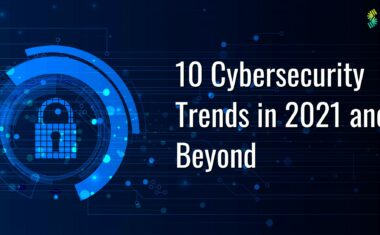9 Security Tools Every Analyst Needs to Know About

When it comes to cybersecurity and protecting your business against threats, you can never be too careful. As security breaches continue to affect companies big and small, taking preventative measures has become a top priority for businesses around the world.
Nobody wants their organization to become the next cautionary tale, but with data breaches affecting even some of the most powerful brands, like Yahoo and Uber, we know that nobody is safe.
While there’s no surefire way to prevent a cybersecurity attack, there are a variety of methods and software tools you can implement to improve cybersecurity and lessen your chances of being targeted. In this article, we’ll cover nine security tools every security analyst and professional should know about. Keep in mind that there isn’t one software tool that will work for every organization–your best option is dependent on your situation and preference.
Related: What Does a Cybersecurity Analyst Do?
And always remember that while software tools are critical, the most important tool is knowledge. With an understanding of how to best implement and use various security tools, you’ll be well on your way to a more secure business.
Related: 25 Free Cybersecurity Resources
Vulnerability Management Software
When it comes to keeping your organization’s information secure, it’s critical that you’re always on your toes. You know the expression “the best defense is a good offense”? The same goes for security. You have to be proactive. If the first time you think about a breach is when it happens, you’re doing it wrong. Instead, you want to be constantly monitoring your network.
Vulnerability management software helps you do just that. These software tools allow you to identify network threats such as hackers, viruses, or malware, so you can immediately begin work to prevent or combat them. Vulnerability management tools enable you to constantly test your network’s security. Since vulnerability management tools are primarily focused on the identification and management of threats, they can take a few different paths if one is detected. Upon recognizing a vulnerability, the software can either alert administrators, remedy the issue itself, or install a patch to alter security policies.
When it comes to keeping your company’s private information secure, you want to make sure you’re using the tool that works best for your business. The following three vulnerability management tools (and all listed tools) are the highest-rated in user satisfaction on G2 Crowd for the given software category.
SpyBot
SpyBot is a vulnerability management software tool by Safer-Networking Ltd. It combines antivirus and its unique technique to protect your organization from spyware, keyloggers, trojans, adware, and more. Since finding a solution to fit your company’s unique needs is a must, it’s important to find tools with flexible plans. SpyBot makes this easy, with multiple plans for both private users and business users, all coming with various features and costs.
Qualys
Qualys was awarded the 2017 Global Vulnerability Management Market Leadership Award by Frost & Sullivan. It offers a variety of tools in various categories, including asset management, IT security, cloud security, compliance, and more. Qualys VM (the company’s vulnerability management tool) scans and identifies vulnerabilities with 99.9 percent accuracy, according to its website.
Atera
Atera is a vulnerability management software tool that provides real-time status updates on system resources, logged-in users, network and IP monitoring, SNMP monitoring, Windows updates, and more. The tool’s customizable options let users decide which alerts they receive via email notification. It also includes IT automation, patch management, asset and inventory tracking, reporting and analytics, and more.
Get To Know Other Cybersecurity Students
Rafael Ayala
Mergers And Acquisitions at Autodesk
Dipen Patel
Cybersecurity Analyst at Accenture
Ed Burke
Cyber Security Career Track Student at Springboard
Password Managers
Raise your hand if you’ve ever reused a password on two (or many, many more) of your various user accounts.
Everyone? OK, that’s what I thought.
While we likely all know that this isn’t the safest or most secure practice, we do it anyway. Why? Because we each have dozens of logins. Every day we log in to the software we use at work, our social media sites, our bank accounts–and that’s just scraping the surface. It’s hard to remember a unique–but still secure–password for every single one of these, and so, we sacrifice the security of our personal data.
With password managers, the days of sacrificing security for convenience (or laziness, depending on which way you look at it) are over. These software tools generate, retrieve, and manage entirely random passwords for all of your accounts, plus keep track of other critical information, like bank account numbers, PIN codes, answers to security questions, and more. You just need to remember one password–the one that gets you into this lockbox of secure information.
As with all software tools, the one that will work for you is dependent on your requirements. For example, if you’re an individual user or small group, you may consider a free password manager. If you’re a larger business looking to maintain critical company data, a paid password manager might be a better option. The password managers listed below are the highest-rated in user satisfaction on G2 Crowd.
1Password
1Password’s name is certainly fitting. With this password manager, you only need to remember–you guessed it–one password. The software tool offers two plans (a pro plan and a standard plan) that enable businesses to securely share passwords and other important items. It offers features like zero knowledge, meaning information is fully encrypted before it’s sent to 1Password, and a secret key, an effort that combines a randomly generated key with the master password to ensure each user has an unbreakable master password.
Keeper
Keeper is a password manager that auto-generates strong and secure passwords, protects sensitive files, and enables you to securely share records and critical information with team members. This tool can be great for businesses, as managers are able to enforce password policies and monitor password compliance. Keeper also offers the ability to quickly and securely autofill login credentials to save time.
LastPass
LastPass aims to help businesses save time, achieve stronger security, and uncover process efficiencies. It’s a brand of LogMeIn and helps companies enforce a meaningful password policy with an enterprise-ready solution, although it’s suitable for businesses of all sizes. The enterprise version offers advanced security features, automated provisioning options, and additional integrations so that customers can personalize their experience.
Antivirus Software
Antivirus software helps businesses prevent or detect malicious software within an endpoint device. These tools host a variety of detection features that enable security teams to identify potential malware and viruses that may attempt to breach your devices.
As mentioned above, protecting your company data is critical, and something to always be cognizant of. Protecting your company’s physical devices (including that sensitive data within them) is just as important, especially if you have remote workers, or even a flexible work-from-home policy, where devices may be more susceptible to attacks.
While there are plenty of paid options to choose from, you may opt to go for a free antivirus software. Whichever you choose, be sure to keep in mind your company’s budget and needs. Below are the three antivirus software tools with the highest user satisfaction on G2 Crowd.
Malwarebytes
Malwarebytes is an endpoint protection software tool that helps your team actively protect against all forms of malware. Malwarebytes offers a variety of different security solutions, but this particular tool brings all of their technologies together into one multi-layer defense solution. Malwarebytes can scan for and remediate malware, which reduces dwell time and the need for endpoint re-imaging.
Webroot Endpoint Protection
Webroot Endpoint Protection is an endpoint protection and antivirus software that helps to protect against sophisticated online threats without sacrificing your system performance. The tool offers a multi-layered protection that helps to prevent threats across a variety of mediums, including email, web browsing, files, URLs, ads, apps, and more.
ESET Endpoint Security
ESET Endpoint Security is an antivirus software tool that leverages a multilayered approach to constantly balance performance, detection, and false positives. It’s supported on multiple operating systems, including Windows, MacOS, Linux, and Android. Based on G2 Crowd reviews, the tool hosts features like asset management, device control, application control, and more.
Security is no joke–especially when it comes to your business and its most sensitive data. With the above tools, you’ll be well on your way to ensuring that your company, its network, devices, and people are protected.
This post was written by Claire Brenner, senior content marketing specialist at G2 Crowd. Claire came to G2 Crowd after graduating from the University of Dayton with a BA in communication. Born and raised in the Chicago area, her brief stint in Ohio gave her a new appreciation for deep-dish pizza, but left her well-versed in Cincinnati-style chili and “cities” with a population fewer than 400,000. While not writing, Claire can be found practicing calligraphy and planning her next trip.
Since you’re here…Interested in a career in cybersecurity? With or Cybersecurity Bootcamp, you’ll get a job in the industry, or we’ll return your tuition money. Test your skills with our free cybersecurity learning path, and check out our student reviews. We’re a safe bet. 🔒😉





